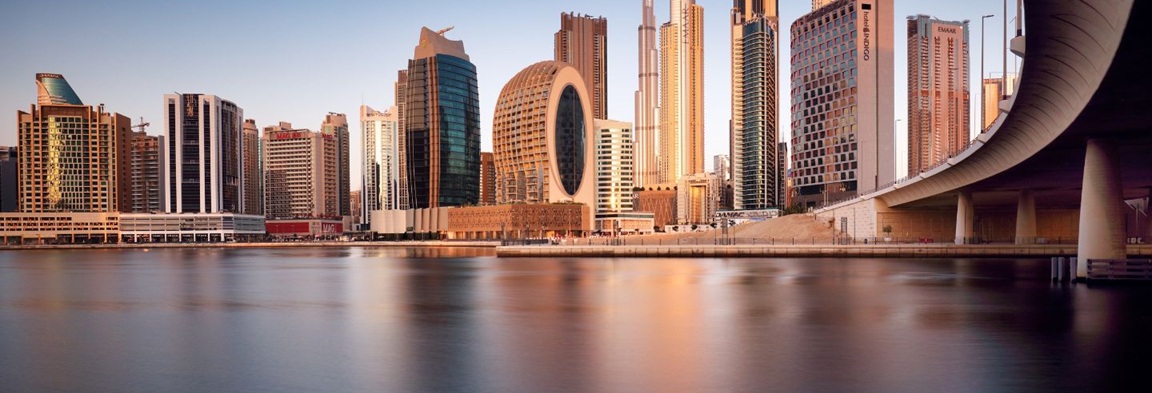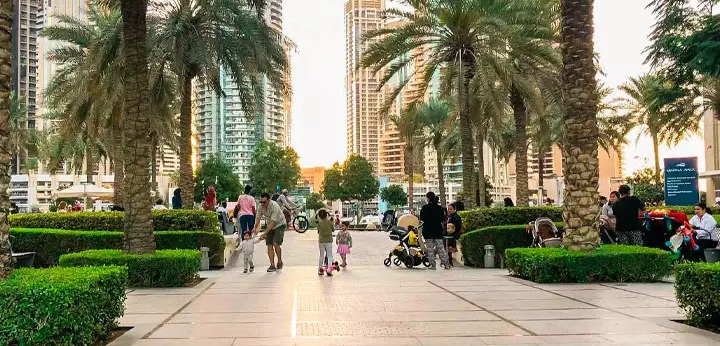Future Trends: UAE Property Market Predictions for the Next 5 Years
Wednesday, 21 May 2025
A new industry report on Dubai’s real estate market for 2025 highlights another robust year across all key sectors. The Emirate continues to reinforce its position as a safe-haven for investors, supported by a 5% increase in population, record levels of residential transactions, and strong economic growth.
In 2024, the residential sector experienced a remarkable 20% surge in sales prices alongside a 19% rise in rental rates. Villas outperformed apartments in terms of price appreciation, while rental increases remained steady across the board. Although a wave of new housing supply is expected in late 2025, it is likely to moderate pricing trends without slowing the sector’s overall momentum.
Dubai’s office market proved resilient amid global economic uncertainty, with rental rates climbing 17% year-on-year, reflecting consistent demand from global firms seeking high-quality office space. The retail segment continues to play a vital role in economic expansion, with consumer spending projected to grow by 6% between 2025 and 2027.
The hospitality sector also achieved impressive results, with average hotel occupancy reaching 78% in 2024.
Commenting on the market outlook, a regional expert noted that Dubai’s real estate sector remains on a strong growth path due to investor confidence, economic diversification, and a clear long-term urban development strategy. The combination of favorable lifestyle offerings, proactive policies, and a steady influx of expatriates and tourists—along with major infrastructure initiatives—continues to position Dubai as one of the world’s most dynamic and attractive real estate markets.
Table of Contents
- Residential Market Overview
- Hospitality Sector
- Office Market
- Retail Sector
- Industrial & Logistics Sector
- Outlook for 2025 and Beyond
- Frequently asked questions
Real Estate Market Highlights
Residential Market Overview
Dubai’s residential real estate sector continued its strong performance in 2024, marked by rising prices, robust demand, and high transaction volumes. The market saw increased interest in affordable, family-friendly villa communities and townhouses, driven by both investors and end-users.
Key Highlights:
- Sales Price Growth:
- Average residential sales prices increased by 20%, reaching AED 1,597 per sq ft.
- Villas outperformed apartments in terms of price appreciation.
- Transaction Volume:
- 2024 saw record-high residential transactions, with 44% taking place in the secondary market.
- Continued demand from both investors and residents supported transaction growth.
- Rental Market Performance:
- Gross rental yields rose to 6.7%, indicating healthy returns for investors.
- Notable rental price increases occurred in:
- Dubailand: up to 46%
- Meydan: up to 43%
- International City: up to 39%
- Buyer Profile:
- The rental market is largely driven by cash buyers and existing residents.
- Strong demand persists for affordable villas and townhouses, particularly from families.
Hospitality Sector
Dubai’s tourism industry maintained strong growth in 2024, driven by global campaigns and an expanding portfolio of luxury and lifestyle experiences.
Key Highlights:
- Overnight Visitors:
- Welcomed 18.7 million visitors, marking a 9% year-on-year increase.
- Hotel Occupancy:
- Average hotel occupancy rate reached 78%, reflecting strong demand across segments.
- Revenue Performance:
- Revenue Per Available Room (RevPAR) rose by 1%, supported by international tourism drives and Dubai’s appeal as a global luxury and business destination.
- New Developments:
- Introduction of new hospitality brands and innovative tourism experiences enhanced the city’s global positioning.
Office Market
Dubai’s office real estate sector demonstrated resilience and growth, with strong interest from international corporations and financial institutions.
Key Highlights:
- Occupancy in Premium Towers:
- Grade A buildings like ICD Brookfield in DIFC reported over 95% occupancy rates.
- Rental Growth:
- Prime office rents increased by 12% year-on-year due to sustained demand.
- Corporate Relocation:
- Dubai remains a top choice for corporate expansions and relocations, driven by pro-business policies and robust economic growth.
- Regional Competition:
- Despite competition from Abu Dhabi and Riyadh, Dubai continues to attract global firms due to its infrastructure and investor-friendly environment.
Retail Sector
Retail real estate in Dubai benefited from increased consumer activity and population growth, supported by hybrid shopping trends and community-focused planning.
Key Highlights:
- Projected Sales Growth:
- Retail sales expected to grow by 6% from 2025 to 2027.
- Hybrid Retail Trends:
- Rise in e-commerce adoption is encouraging omnichannel strategies, blending physical stores with digital platforms.
- Urban Planning Impact:
- The Dubai Urban Master Plan 2040 promotes community-based retail hubs for greater accessibility.
- Sustainability & Tech Innovation:
- Focus on tech integration and sustainable practices is transforming neighborhood retail experiences.
Industrial & Logistics Sector
Dubai’s industrial real estate segment continued to flourish, powered by growth in manufacturing, logistics, and e-commerce.
Key Highlights:
- High-Performing Zones:
- Top rental activity observed in:
- JAFZA
- Dubai South
- Dubai Investment Park (DIP)
- Top rental activity observed in:
- Warehouse Rental Growth:
- Warehouse rents in JAFZA rose by 28% year-on-year, highlighting strong demand.
- Trade Sector Performance:
- UAE’s trade activities grew in 2024:
- Imports up by 8.4%
- Exports up by 6.6%
- UAE’s trade activities grew in 2024:
- Strategic Role:
- These trends reaffirm Dubai’s position as a leading regional trade and logistics hub.
Outlook for 2025 and Beyond
Dubai’s real estate sector is set to maintain its growth momentum, fueled by forward-thinking government initiatives, major infrastructure developments, and rising foreign direct investment. The residential, commercial, and hospitality markets are expected to remain on an upward trend, with some segments seeing moderate stabilization as new supply comes online.
As the city moves forward with its Dubai 2040 Urban Master Plan, a strong emphasis on sustainable urban growth, advanced transportation infrastructure, and smart city projects is likely to boost Dubai’s appeal to both investors and residents, solidifying its position as a global real estate leader.
Frequently Asked Questions (FAQs)
What is driving the growth of Dubai’s real estate market in 2025?
Dubai’s real estate market continues to benefit from a strong economy, increased foreign direct investment, ambitious government initiatives, and ongoing infrastructure projects. These factors, along with rising demand in the residential, commercial, and hospitality sectors, contribute to the market’s sustained growth.
What is the performance outlook for the residential market in Dubai for 2025?
The residential market in Dubai is expected to remain strong in 2025, with continued demand for villas and townhouses, particularly in affordable, family-friendly communities. However, the influx of new housing supply may lead to some stabilization in pricing trends, while overall momentum remains positive.
How has Dubai’s hospitality sector performed in recent years?
Dubai’s hospitality sector saw strong growth in 2024, with a 9% increase in overnight visitors and a hotel occupancy rate of 78%. The introduction of new hospitality brands and global tourism campaigns has further strengthened the city’s position as a leading luxury and business travel destination.
How is Dubai’s office market performing amidst global economic uncertainty?
Despite global economic fluctuations, Dubai’s office market has demonstrated resilience, with a 17% increase in rental rates in 2024. The demand for high-quality office space from multinational corporations and financial institutions remains strong, especially in prime locations like DIFC.
What is the future outlook for Dubai’s retail and industrial real estate sectors?
The retail sector is expected to grow by 6% from 2025 to 2027, driven by increased consumer activity and the rise of hybrid shopping trends. The industrial and logistics sectors also continue to expand, fueled by the growth of manufacturing, e-commerce, and trade, with warehouse rental rates in key zones like JAFZA seeing significant increases.





